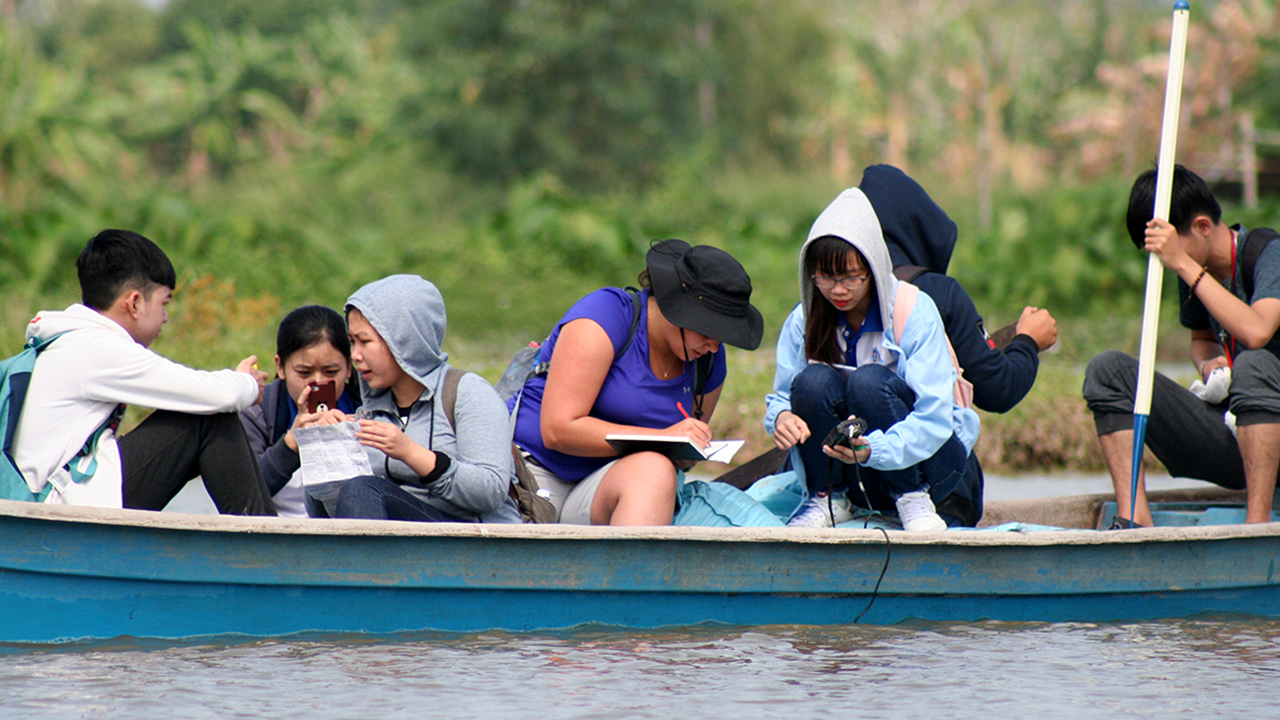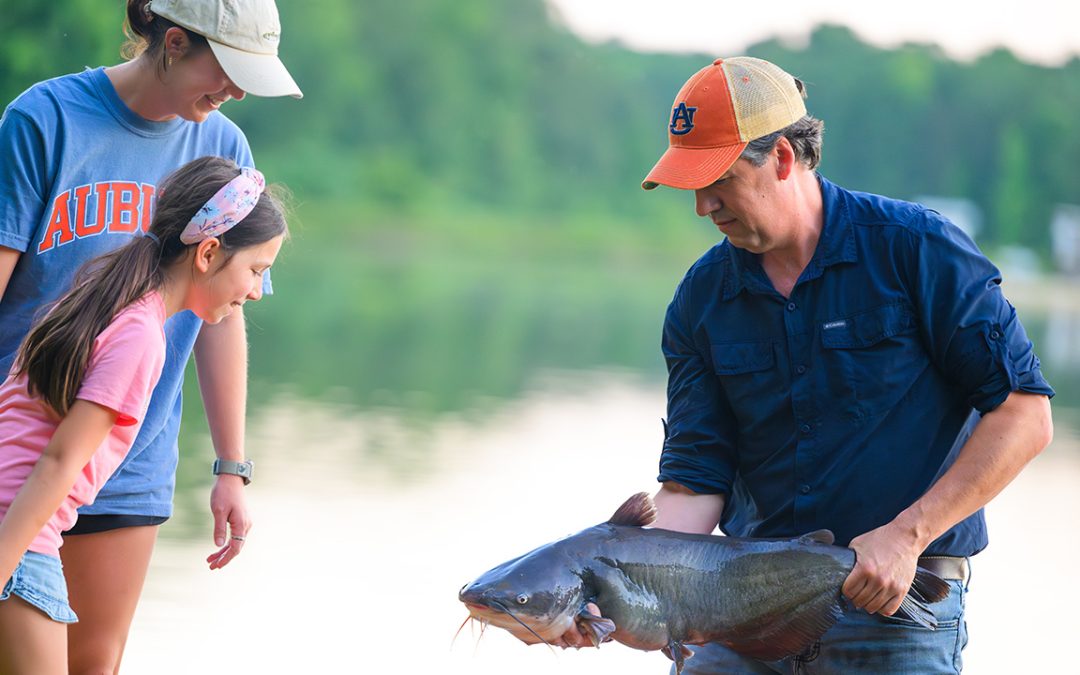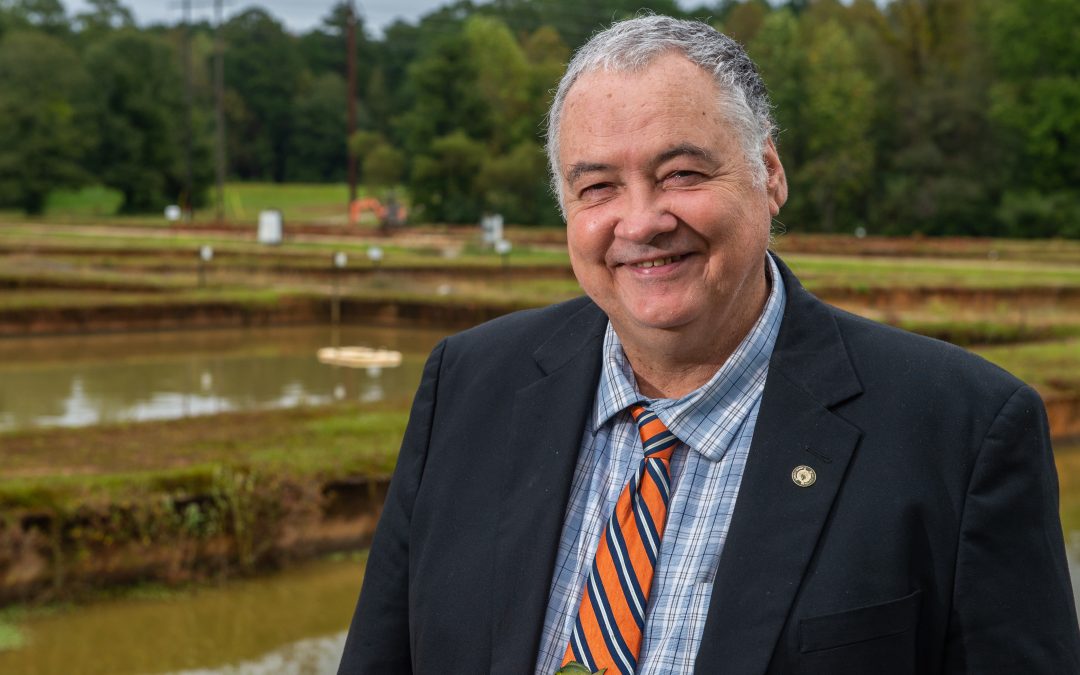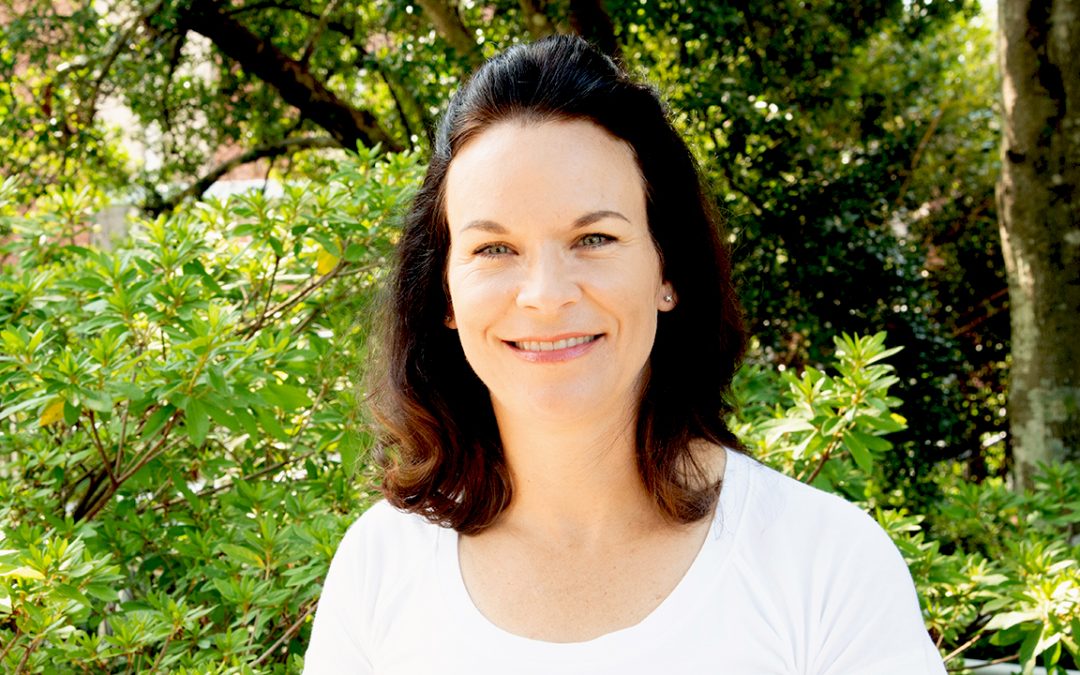By Laura Cauthen / May 2, 2018 10:48:27 AM
Feature
Ideal may not be the first word that comes to mind when one considers Vietnam as a destination, but that’s how School of Fisheries, Aquaculture and Aquatic Sciences associate professor Bill Daniels describes the locale for the study abroad version of his Auburn aquaculture production course.
Every winter break since 2010, Daniels has led a group of Auburn students to Can Tho University Vietnam—a leading agriculture institution in the Mekong Delta—for intense field-based, hands-on training in aquaculture production.
While there, participants study alongside Vietnamese students under the tutelage of Daniels and Can Tho faculty. Labs include fieldwork in area aqua systems and excursions to local farms, feed mills, processing plants and markets.
On the most recent tour, Daniels, fisheries postdoctoral researcher Husham Abdulrahman and a record 11 Auburn graduate and undergraduate students rang in the new year in Can Tho.
So why would Daniel consider Vietnam an ideal location? Several reasons.
For one thing, he said, he country’s year-round tropical climate means that Auburn students, while they’re on break, can complete Daniels’ four-credit-hour, semester-long course in two weeks.
Second, he said, with its extensive and varied aquaculture systems, Vietnam offers students an impressive environment in which to engage with all manners of aquaculture systems—saltwater, freshwater, brackish waters and ponds.
The experience also allows students to learn from the world’s fourth-ranking nation in aquaculture and fisheries production. Vietnam produces nearly 3.4 million metric tons annually, with catfish and giant tiger prawn the two main products. And since catfish production is a major industry in Alabama, students get to learn from the competition.
The most important reason, however, is the cross-cultural exposure that Vietnam, or any of the college’s other study abroad destinations, provides students and faculty, said Daniels, who also serves as acting director of the College of Agriculture’s Office of Global Programs. International study tours are an opportunity to exchange beneficial knowledge in scientific discoveries, innovations and technologies. It’s information that can only be acquired through global collaboration, according to Daniels.
“We believe in partnerships, and we value collaboration,” Daniels said.
“We live in a global economy and agriculture is the world’s number one industry,” he said. “Study abroad opportunities prepare our students to compete in that global economy and sharing knowledge is in the best interest of us all—researchers, producers and consumers.”
As an example of a common shared benefit, Daniels points out that 90 percent of our seafood comes from outside the U.S.
“We need to be engaged globally so that we know what’s coming in,” he said. “We need to be making the necessary connections to ensure that what’s imported is safe and that we’re developing strategies for ensuring that safety. That can only occur by being connected.”
Fortunately, Auburn’s College of Agriculture has a rich history of international engagement, particularly in the areas of food security, fisheries and aquaculture. Auburn fisheries’ history of international collaboration goes back to the 1950s, and it contributes to the school’s highly regarded international reputation.
In fact, due to that reputation, Can Tho University approached Auburn in 2008, requesting aid in establishing its aquaculture and fisheries production program. Since then, the two universities have exchanged valuable research and knowledge—knowledge such as the advantages and disadvantages of certain production methods, strategies for combating catfish disease and insight into the Vietnamese industry’s ability to produce in such high volumes. And that information has been passed on to and has benefited the domestic catfish industry.
Collecting such knowledge is why Daniels is passionate in his mission to expand global programs and to spread the word about their benefits.
“We lose a lot of knowledge by not getting out of our vacuum and getting to know the competition,” he said. “We are not going to learn, grow and expand if we don’t collaborate on an international scale.
“That’s why we promote an expanded worldview among our students. It just makes sense to our put heads together and come up with solutions to common problems.”
By Laura Cauthen




